On September 22nd, I’ll be participating in a panel called Safe(r) cities for trans folks. From the description:
Trans, gender diverse and 2SLGBTQ+ communities are subjected to experience significant violence in Ottawa and across Canada. Despite progress on 2SLGBTQ+ rights, the everyday realities of many in our communities are largely unchanged.
What role can our municipalities play in helping to prevent, challenge and address anti-trans violence?
Certainly I have my fair share of stories of harassment in Ottawa. As do all of my gender diverse acquaintances.
There is no simple remedy. However, here are some ideas to marginally improve conditions.
Housing
The deleterious effects of this day-to-day violence are in how it negatively impacts mental health. It takes more than municipal governments to, say put an end to street harassment, but they can build resilience in the gender diverse population to weather these attacks by ensuring security in other aspects of their lives.
First among these is housing security. Half of trans and non-binary people in Ontario make less than $29,000 a year. A quarter make less than $15,000. Furthermore, 52% experienced additional negative financial outcomes as a result of the pandemic. Yet, the median rent for a 1-bedroom in Ottawa is over $1,600. It’s not affordable and even less so for those on ODSP where the government provides $497 a month for shelter.
Part of the underlying issue is that only 20% rental households being added in Ontario are purpose-built; so the cost of rent ends up tied to the cost of mortgages. As the price of homes in Ottawa increased 60% from 2017 to 2021, so too did rentals: the median price for 1-bedrooms in 2017 was $1,050. Meanwhile Airbnb, founded in 2008, single-handedly reduced the number of long-term rentals in Ottawa by as many as 1,900 properties.
The municipality should continue to introduce aggressive policies to cool the housing market while increasing the supply of affordable rental units. For radically different outcomes the city needs equally radical revisions to funding; Ottawa manages $331 million for policing but only spends $19 million in housing and homelessness programs.
Speaking of which, the gendered language around shelter access creates a barrier for trans and non-binary people. Especially for, say a trans man who has not had hormone replacement therapy, or for a non-binary transfeminine individual. As one advocate put it, “funding needs to be distributed away from “male beds” and “female beds” — in favour of “safe beds.””
Policing
The Ottawa Police is generally perceived as reducing safety for trans and non-binary individuals, and only invoked as an absolute last resort. This is in line with national data; a study found that 69% of trans and non-binary people in Canada are worried about being stopped or harassed by police or security and 22% avoided calling for police services in the past five years. The numbers are significantly higher if the individuals are also racialized (73%/33%) or do sex work (84%/48%).
While police reform is necessary, safety can also be increased by making interactions with law enforcement officers less likely.
For example, the Ottawa Police should cease operations against sex workers. Despite 52% of trans and non-binary sex workers having been sexually assaulted in Canada, up to 96% did not expect fair treatment from police and the legal system and 48% have avoided calling police services altogether. These police actions discourage victims of sexual assault from reporting. That police and governments are conflating consensual sex work with sex trafficking is dangerous.
Likewise, the Ottawa Police should perhaps not be the body to intake sexual assault victims. A report found that only 44% of women who reported sexual assault to the Ottawa Police felt believed, and 37% felt the police were considerate of her feelings and opinions. Given that 26% of trans and non-binary Canadians have been sexually assaulted (36% for gender diverse indigenous individuals), this behaviour ends up shielding perpetrators.
Nor should law enforcement officers be the first to respond to mental health crises or “vagrancy calls”. 9% of trans and non-binary youth in Canada attempted suicide in the past year and 17% are housing insecure. What they need isn’t more traumatic experiences; it’s generous, accessible and meaningful housing options and health care. The solutions here are no mystery; unfortunately neither is why the city has favoured leveraging law enforcement.
There’s been multiple reports of trans people in Ottawa being denied services at establishments serving alcohol due to questions of ID. In one case where the Ottawa Police was subsequently called, the officers aided in the removal of the trans person. The city should integrate awareness around identification documents for trans and non-binary individuals as part of its alcohol licensing process as to reduce the potential for law enforcement being invoked.
Finally, the city should start collecting anonymous data on transphobic incidents; this too can be done without the police.
Libraries
The city should not pay for and distribute unfounded, conspiratorial and fear-mongering literature about trans people written by cisgender authors who advocate for their eradication from society.
In Ontario, 67% of trans youth report their parents being unsupportive, and 57% of these youths with unsupportive parents attempt suicide each year. Across the country, a quarter of trans and non-binary youths had their parents stop talking to them after coming out. So for the Ottawa Public Library to purchase 26 copies of “Irreversible Damage: The Transgender Craze Seducing our Daughters” which beckons parents to reject their children makes the institution an active source of harm in this tragic moment.
The library’s posture is that it’s not in the business of censorship, but that is only half true: the institution declines to carry titles all the time that its largely middle-class, white, straight and cisgender decision-makers deem inappropriate. To claim neutrality when it’s hate literature directed at trans people reveals this excuse for what it is.
The library could help counter this moment and message that it is a safer space, for example, emulating this inclusive signage the Vancouver Public Library installed years ago for their washrooms. This matters given that only 38% of cisgender Ontarians believe that trans people should be able to use the washroom corresponding to their gender identity. However, when gender diverse staff at the Ottawa Public Library asked upper management for such signage, the leadership said no.
Messaging
There’s been a number of homophobic and transphobic incidents in Ottawa in the past two years:
- A “No Radical Gender Ideology” protest on Parliament Hill
- Another anti-trans demonstration at the Ottawa Courthouse 4 days before this Safe(r) cities talk; the dog whistle this time is about the purported danger of trans women being incarcerated with cis women
- Another protest, this time targeting trans youth, in front of Ottawa area schools – including an elementary school. Observers remarked that the protest as timed with when kids were entering and leaving school and that the lead protester was filming school children.
- Yellow Vests (white nationalists) disrupt the drag queen story time for young families at Capital Pride
- The Ottawa Citizen publishes a fear mongering article about trans youth
- The Hill Times publishes advertisements opposing the acceptance of trans youth
- A protest to oppose the presence of a trans olympian
- Parliament hosts transphobic discourse in the opposition of a conversion therapy ban
- Transphobic signage appearing around the city
This on top of the multiple testimonies of trans and non-binary people in Ottawa being called slurs, spat on, and assaulted for merely walking on sidewalks and going about their day.
We’re in a province where 84% of trans and non-binary people avoid one or more public spaces for fear of harassment or outing and where 69% have been verbally harassed in the past 5 years. We’re in a province where 22% of residents are uncomfortable with a trans person living next door.
These transphobic incidents are detrimental to the well-being of those targeted and city hall for its part has remained largely silent. As Elie Wiesel once opined “Silence encourages the tormentor, never the tormented.”
It’s no secret that Ottawa is conservative, and I suspect any display of support would prove unpopular. Nonetheless, a safe community isn’t one that looks the other way. City Hall needs to communicate support outside of the confines of Pride week. It doesn’t always have to counter the transphobes directly; in this climate that risks creating martyrs for American and British conservative media to lionize and generate vitriol orders of magnitude greater than the instigating incident. But City Hall should at least respond by instituting measures in parallel to every one of these events to make it clear that trans and non-binary residents are to be included.
Thank you to Phoenix for reviewing this and your input.
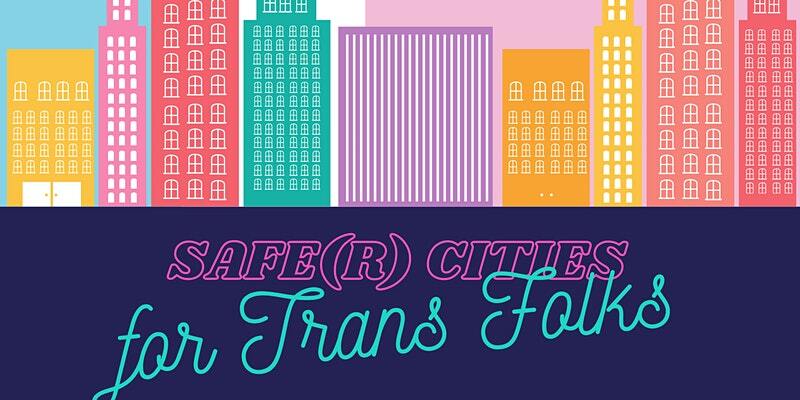
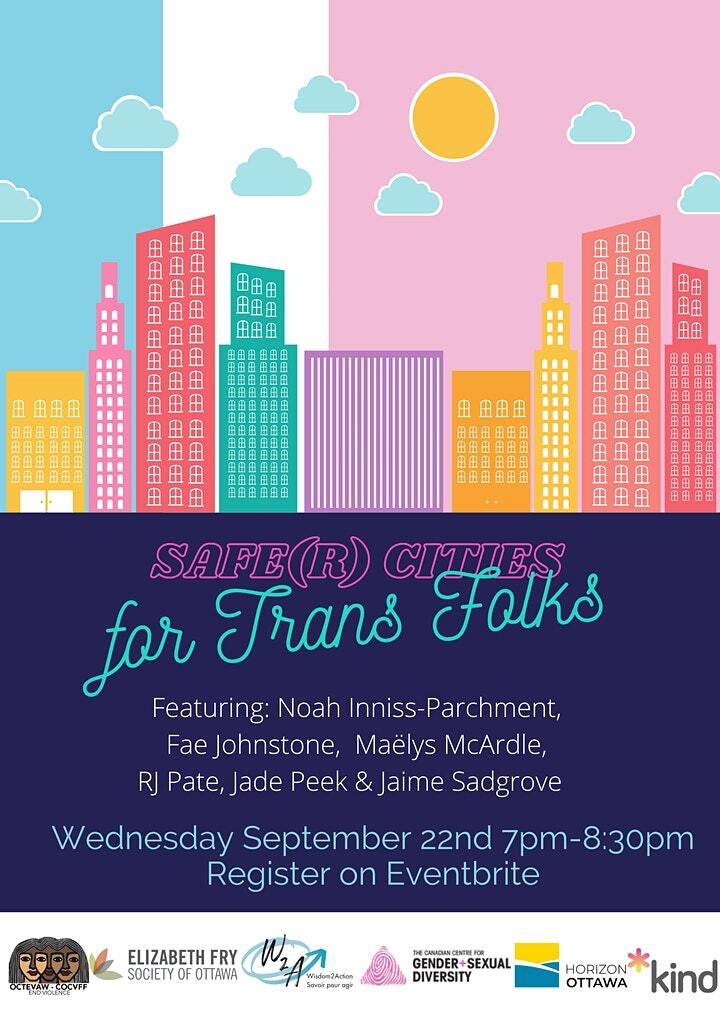
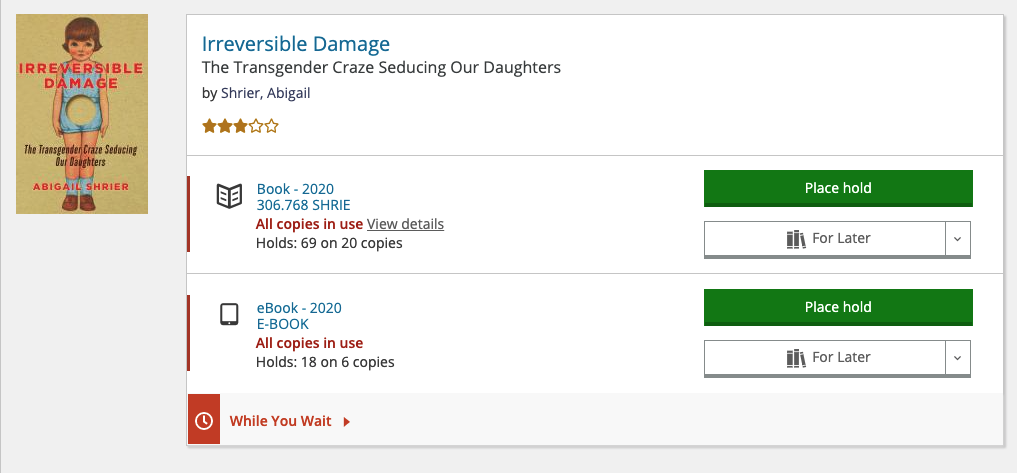
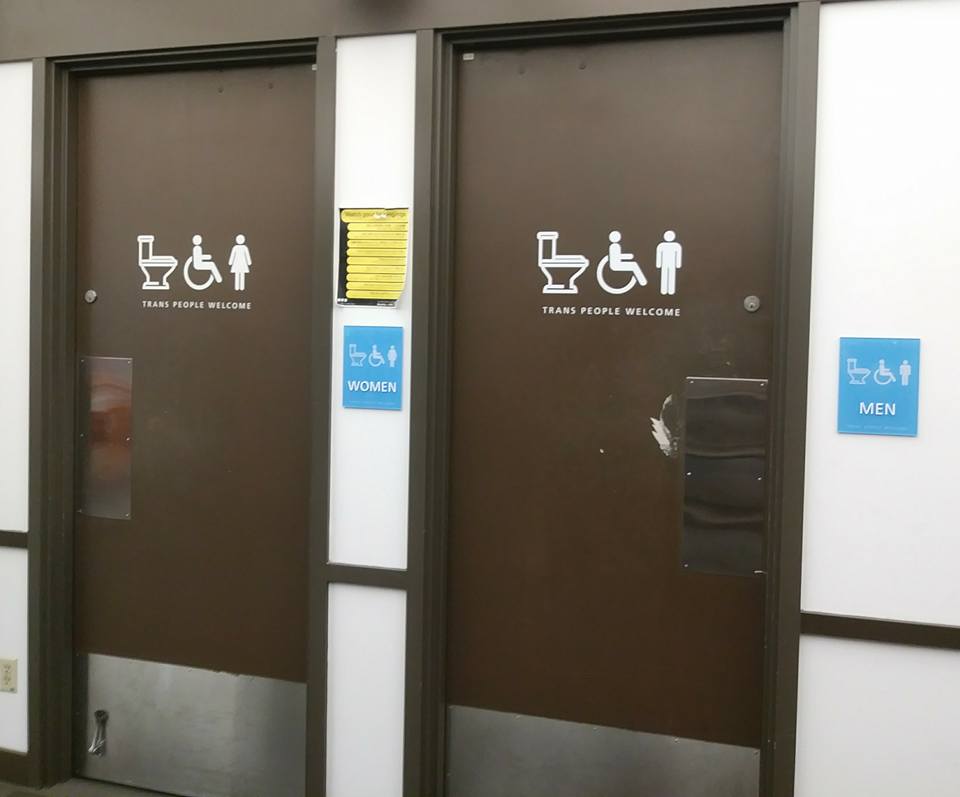
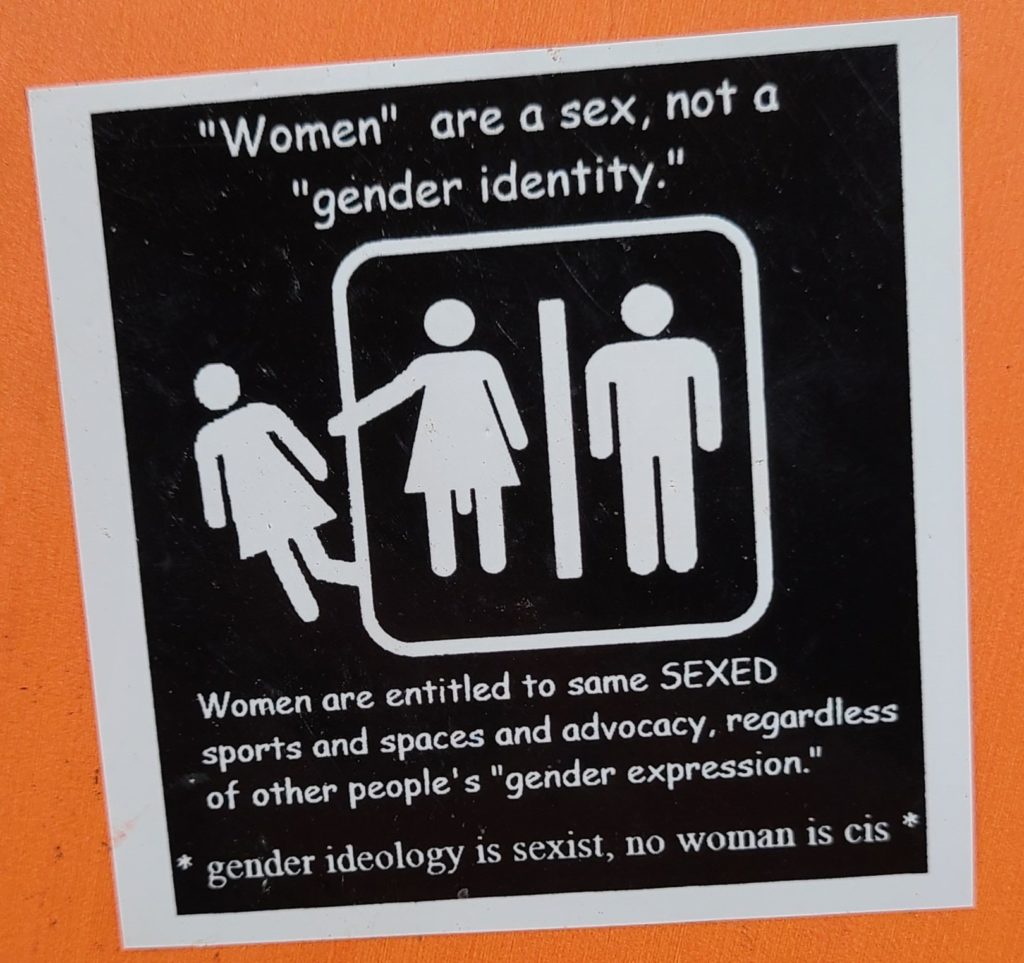
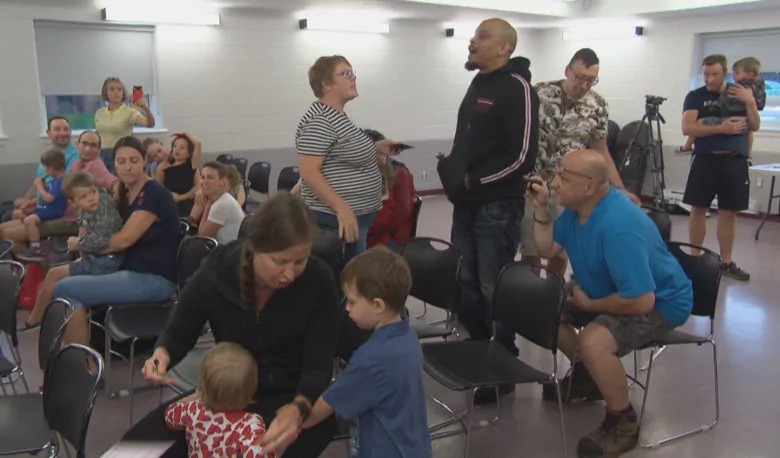
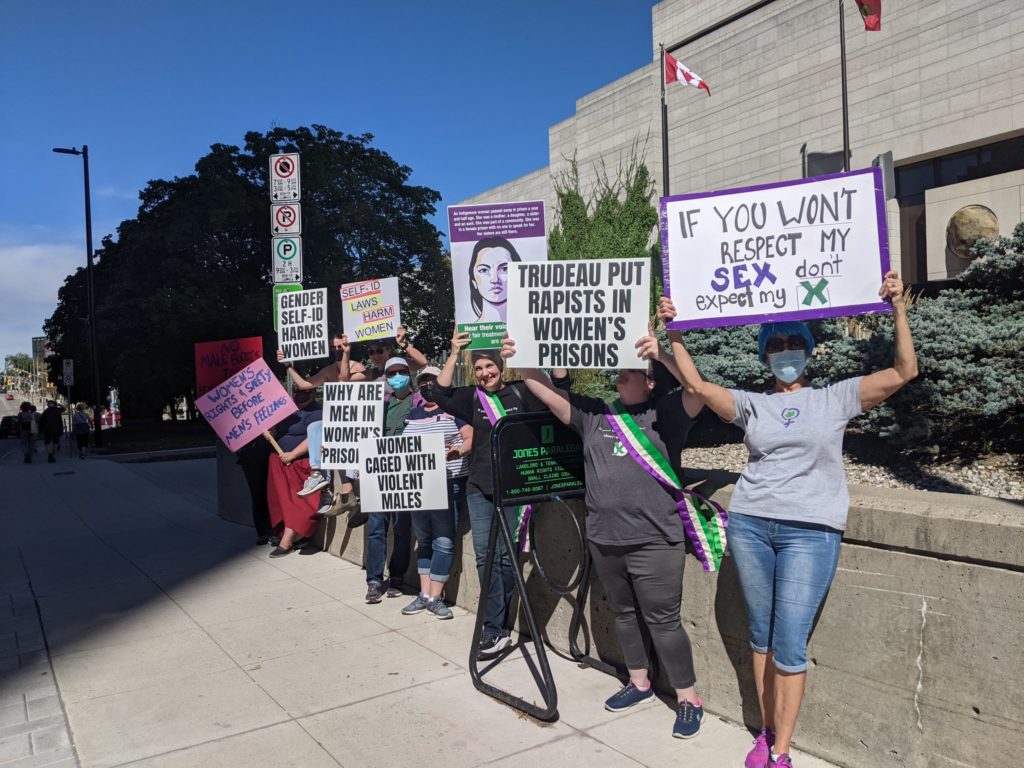
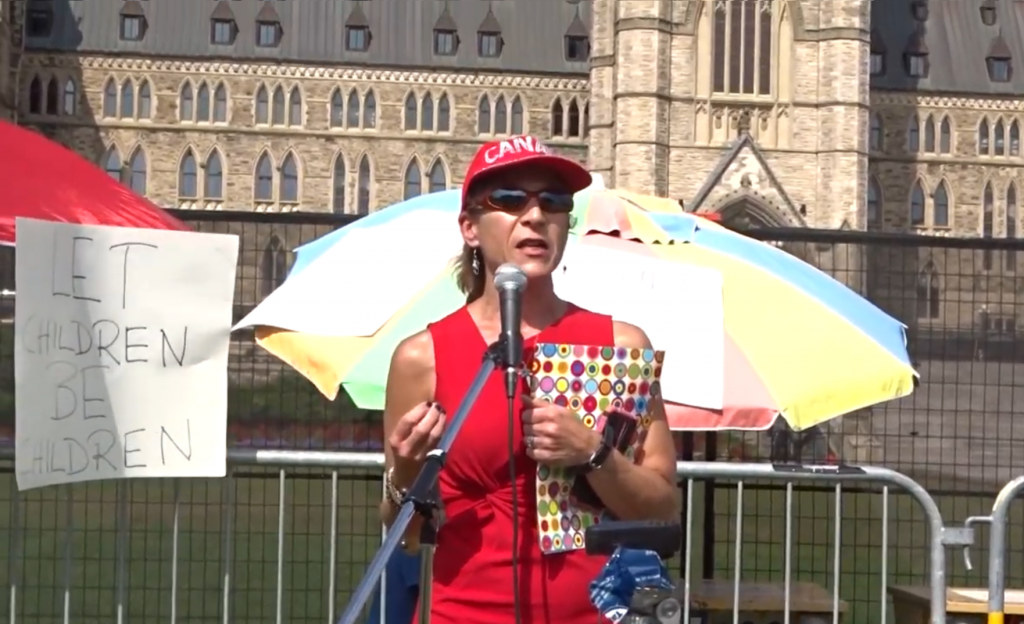
Comments
3 responses to “Safe(r) cities for trans folks”
I tried to think of a historical example of people pushing for book bans being the good guys, but I couldn’t come up with one. Apparently the people in charge of libraries (which I’m sure are a bunch of ultraconservative transphobic bigots) feel the same way.
As it turns out, trans women do indeed have a physical advantage over biological women in sports.
https://www.theguardian.com/sport/2021/sep/29/new-guidelines-for-transgender-participation-unveiled-by-uk-sports-councils
I haven’t a comment like that in quite a while. Hi there!
It’s quite clear you’re disinterested in the safety of trans people, the subject of this post which you didn’t even acknowledge. Likewise you make it pretty evident that you wouldn’t be interested in anything I’d have to say! So I’m not going to pretend like there’s going to be a dialog here.
However, this is a great opportunity to remind readers of the nuanced look at the issue of the library’s duty:
https://www.maelys.bio/2021/05/the-iceberg/
In short, libraries decline to carry books advocating for the abuse of children and books that are just unfounded conspiracy theories about minorities all the time. Irreversible Damage is both, and it would be irresponsible given the climate to make an exception.
As for the sporting link, I’ve discussed prejudice under the guise of sporting science before. I’d encourage readers who are unfamiliar with this latest dog whistle to check out this article:
https://www.maelys.bio/2020/10/science-and-transphobia/
Thank you for giving me this chance to share these once more!
Hello! Actually, I’m all for the safety of everyone. That especially goes for trans people and all other groups who are at higher risk of being victims of violent crime. It’s a big part of why I support the municipal government department that’s designed to keep people safe, and oppose efforts to degrade (ie excluding from Pride events) or defund said department – while of course supporting efforts to build better relationships with at-risk communities and more extensive training to help officers sensitively handle tricky cases. Not something that can be done over night, but it would do a lot more good than getting rid of a library book you disagree with.
There are many books available at the Ottawa public library that I think promote unfounded conspiracy theories about minorities and the abuse of children – the works of Adolf Hitler, Robin Diangelo, and Ibram X. Kendi, the Protocols of the Elders of Zion, among others. I’d never dream of demanding the library remove them. The solution is to write a better book that people actually want to read (from the looks of it, Irreversible Damage has a shortage of copies). Silencing critics of the gender affirmation model harms people like Keira Bell, who was maimed and chemically castrated by a gender clinic. It is not a surprise that many jurisdictions are pumping the brakes on gender transition for minors – places as diverse as red US states, the UK, France, Sweden, and Finland. Even some of the doctors are going “hey, wait a minute”. The dam is cracking.
https://bariweiss.substack.com/p/top-trans-doctors-blow-the-whistle
Setting policy on what is and isn’t fair for women’s sports isn’t a dog whistle, it’s an essential part of the competition. If trans women having a physical advantage is to be ignored because there are in-group variations among biological women, there is no reason to exclude anyone from women’s sports (irrespective of whether they are or identify as male, female, nonbinary, trans, none of the above, all of the above, or whatever) – men may have an advantage over (trans) women on average, but variations among both groups sometimes lead men to lose.